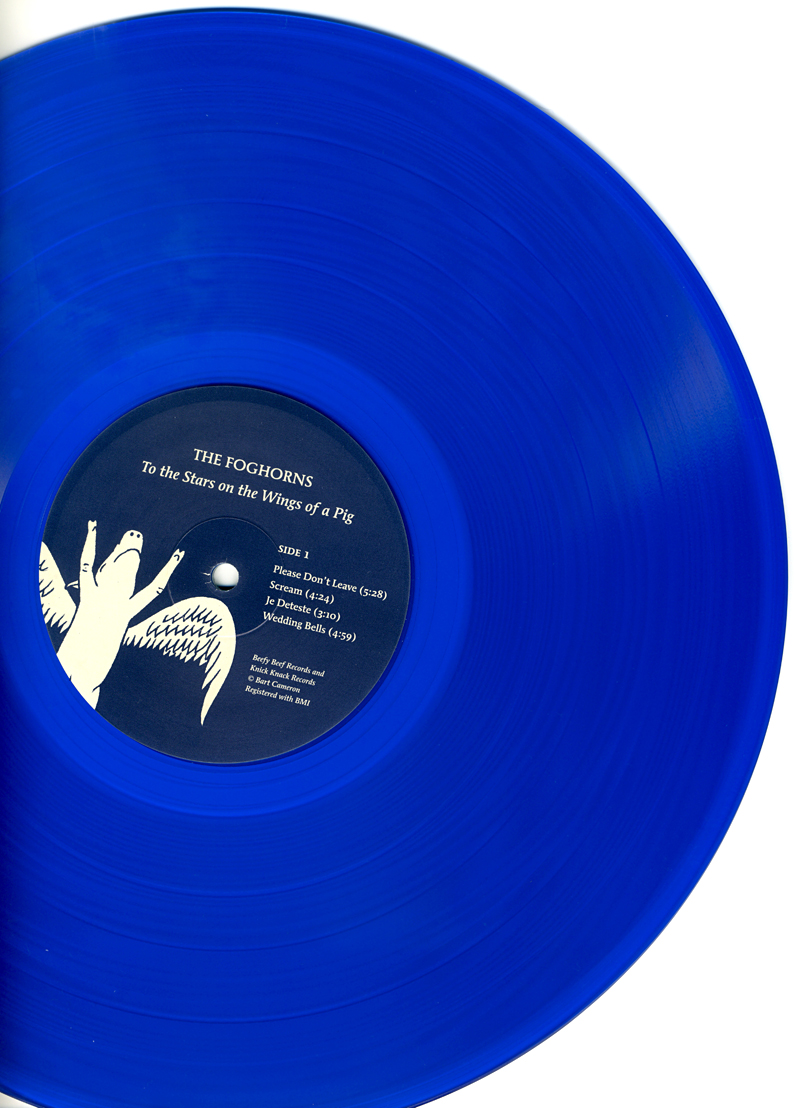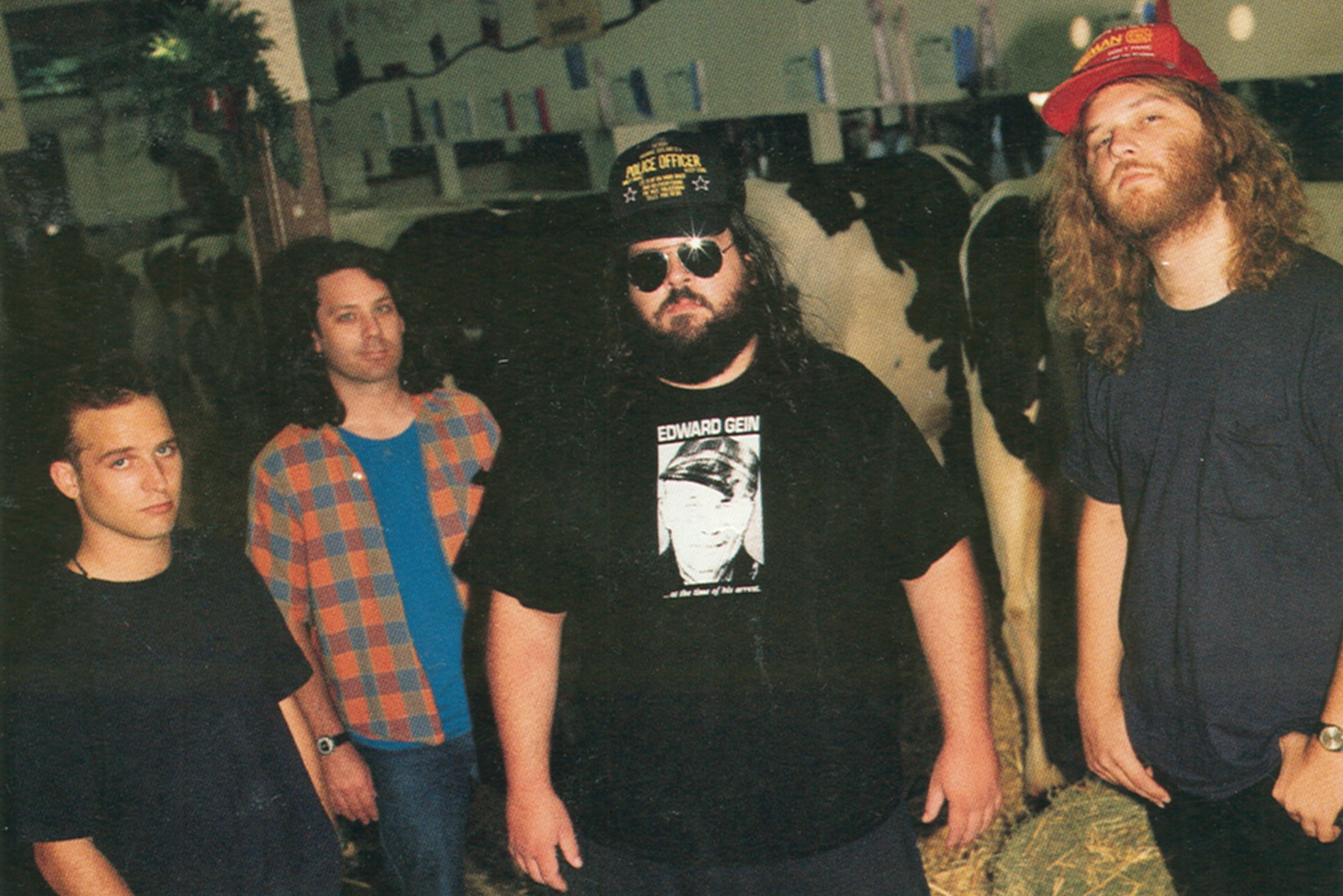Two new local labels are on the rise, thanks to an artist-centric, handcrafted approach.
To understand the inspiration behind Ballard’s year-old indie label, Fin, one first needs to understand the story of Black Sparrow Press. The Santa Rosa, Calif., publishing company was founded in 1966 by John Martin, a collector of rare books who sold his archive of first editions to raise enough money to publish the work of a then-unknown author named Charles Bukowski. For 36 years, Martin ran the small company, which quickly grew to include authors like John Fante and Paul Bowles and which never waned from its dedication to its mission. Martin would send Bukowski postage-paid envelopes, which the writer would return stuffed with prose and which Martin would publish without alteration. Before his death in 1994, Bukowski told Transit magazine, “Black Sparrow Press promised me $100 a month for life if I quit my job and tried to be a writer. Nobody else even knew I was alive. Why shouldn’t I be loyal forever?”
Therein lies the blueprint for Fin, the brainchild of 51-year-old Christian Fulghum. After listening to the gripes of bands coming through Wallingford’s Jupiter Studios, which he’s owned for 16 years, he decided to start a label. “It hit me that even in this DIY era, where musicians have the power to create what they want at a reasonable cost,” he says, “people were still very dissatisfied with the whole label aspect.” His idea: Give young bands an opportunity to be heard via limited-edition, high-quality, handcrafted seven-inch singles—while staying out of their way, giving them creative control over each aspect of the release.
All the label’s releases are small runs, mostly around 500 copies, all on colored vinyl, hand-numbered, and in an embossed jacket. “It’s meant to go from ubiquity, which is what digital is good at, to scarcity,” Fulghum says—though he was quick to point out that he’s not anti-digital either; the $10 price tag of his singles includes a digital download as well.
Whiting Tennis, an acclaimed sculptor and painter who moonlights as a folk singer, jumped at the chance to make a record with Fin. “He gives the artist 100 percent control over the songs, the mixing, the order of the songs, the look of the package, the color of the vinyl,” Tennis says. “He has a utopian take on the whole concept of a label. It’s a ridiculous idea in the commercial world, but if it’s done on a really small scale and you’re only doing 500 copies, there’s not that much to lose.”
J. Pinder, a rising Seattle hip-hop artist, has a similar story. He said wasn’t looking for a label when Fin approached him, because he didn’t think there was much a label could do for him that he couldn’t do himself. But Fulghum changed his mind. “He didn’t want to own my masters or run a traditional label,” Pinder says. Fin’s philosophy of developing artists over a longer trajectory is what piqued the rapper’s interest: “It was the right situation where I was still in control and I wasn’t signing my life away.”
Across town, Joe Johnson had a similar idea: What if he could create an online record store that was as enjoyable to shop at as the brick-and-mortar mom-and-pop stores he loved that were rapidly going out of business? To do that, he created Knick Knack Records, a digital record store (and label) which sells not only new releases from artists like the Black Keys and T-Model Ford but also a hand-picked selection of used LPs. He hopes soon to expand to tickets, T-shirts, books, and more. “I’m curating a particular niche of music that I think will appeal to a certain segment,” he says of the endeavor—”people who like rock & roll.”
After learning the ropes as an intern at local label Sarathan, Johnson (who spends his days as a web-merchandise planner for a large retail clothing brand) decided to launch a record label in whatever bits of free time he could muster. His experience as an accountant and a warehouse manager for several large e-commerce companies prepared him for starting Knick Knack as a label, but after studying the economics he decided to launch an online specialty shop alongside it. “It’s tough to generate enough revenue to keep yourself afloat as a label,” he says. “Your competition is Warner Bros. and Sub Pop and much bigger organizations who have so many more resources.”
Johnson’s goal is to cut out as many middlemen as possible from the process, and he hopes his hand-picked selections and passion for vinyl will encourage record buyers to shop with him instead of giant e-tailers like Amazon, which he says does a crummy job of fulfilling vinyl orders. “They ship vinyl in boxes that were made for books,” he says, “and it comes to you fucked-up.”
Though the Knick Knack web store got off the ground first, last September the label released the LP To the Stars on the Wings of a Pig from Seattle’s the Foghorns. Johnson said he has at least half a dozen releases lined up through the first half of 2012, including a new record from psychedelic blues band GravelRoad. Bandleader Bart Cameron said they decided to make the record with Johnson after his web store sold an impressive amount of their previous albums.
The artist-friendly approaches of Fin and Knick Knack have made bands eager to align with them. Though neither label signs bands to a traditional multi-album record deal involving book-length contracts, the handshake arrangements benefit both parties, particularly as each begins to operate on a larger scale and establish their identities. Cameron says Johnson has stayed out of the way of their creative process: “All I’ve gotten in terms of critique was shocking enthusiasm.”
Both labels are beginning to get noticed. Fin has released a radio-only 12 single by J. Pinder that’s seeing traction on college charts, with a full-length yet to come. In March, the label will release a single by the Walkabouts, who have been generating airplay on KEXP. And, most rewarding for Fulghum, his records have garnered praise from tastemaking music blogs with a penchant for vinyl, like Philadelphia’s The Styrofoam Drone.
While Fulghum is able to devote most of his energy to Fin, Johnson doesn’t yet have that luxury at Knick Knack. “My goal in 2012 is to quit my day job,” says Johnson, who hopes that Knick Knack’s continued success can make that a reality. And with most indie labels operating on what he calls “the old model,” he thinks he is well-positioned to succeed.
“If you manufacture it yourself and sell it directly to the customer, your margin is so much bigger,” Johnson says. “With a handful of bands, we can do what a larger label [can] do.”








